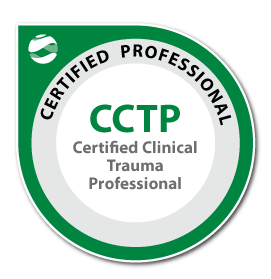Clinical Hypnosis and Hypnotherapy: Treatment for Anxiety, Panic Disorder and Phobias

Anyone with anxiety, panic disorder or phobias understands only too well how severely these conditions can affect your life. Perhaps you’ve tried other therapy and treatment methods but are still seeking more effective relief. Hypnotherapy can give you the tools you need to secure real and positive change. Change that will have you feeling better and capable of doing more of the things you enjoy with your friends and family.
What is Hypnotherapy Treatment?
Patients who struggle with anxiety, panic disorder and phobias are finding real relief through clinical hypnosis. It’s a specialized kind of therapy where the patient is technically in a trance state. It might sound a little scary but being in a trance is really no different than having a very high level of concentration. It’s like being so involved in a project or activity that you completely lose track of time. You’re awake and aware of what’s going on around you, and you never lose control of the situation or process. It’s just a very deep and focused state of concentration that’s guided by a specially trained hypnotherapist.
A Treatment Approach That’s Focused on You
Because of the strong level of focus you achieve in a hypnotherapy session, you’re able to reach your own reserves of strength and healing while shutting out distractions. One of the hallmarks of Erickson hypnotherapy is how closely your therapist works with you to craft a fully customized treatment plan that’s based on your own inherent strengths. All the therapist is doing is guiding you and showing you how to draw on your own potential to make positive and long-lasting change through the natural connection of body and mind.
Erickson hypnotherapy stands out as a particularly effective treatment method for those seeking to overcome anxiety, panic disorder and phobias because of its foundational approach. The first step is to help patients feel safe and secure so that they can look inward; then patients identify their own internal resources and use those strengths to improve. Depending on you and your needs, clinical hypnosis can be used alone or as part of a full treatment plan that may include cognitive-behavioral therapy (CBT), guided imagery, mindfulness practices and more. Several studies have shown that therapeutic methods like CBT can be more effective when used in combination with clinical hypnosis.
What to Expect in Hypnosis Therapy
In your first meeting, you and your hypnotherapist will discuss your medical, social and family history. You’ll also spend time exploring what you hope to achieve through hypnotherapy. With this information, the clinician develops a custom treatment plan for you that incorporates your needs as well as your goals, challenges and interests.
On later visits, you can expect to spend less than a half-hour under hypnosis, guided by your hypnotherapist, who’s spent years of training in this particular technique. Through conversation, you’ll reach intense levels of focus. When your clinician discusses new ways to manage your symptoms, your subconscious mind can better learn to apply those ideas because there’s less resistance from your conscious mind. Because of the power of the mind/body connection, you’ll experience the benefit of learning these new approaches to managing your symptoms of anxiety, panic disorder and phobias long after the hypnotherapy session has ended.
If you’re looking for a hypnotherapist near you, reach out to Smith Psychotherapy today and take the first step on the road to recovery from anxiety, depression, panic disorder and phobias through hypnotherapy.
hypnosis therapy hypnotherapist hypnotherapy treatment psychotherapy



